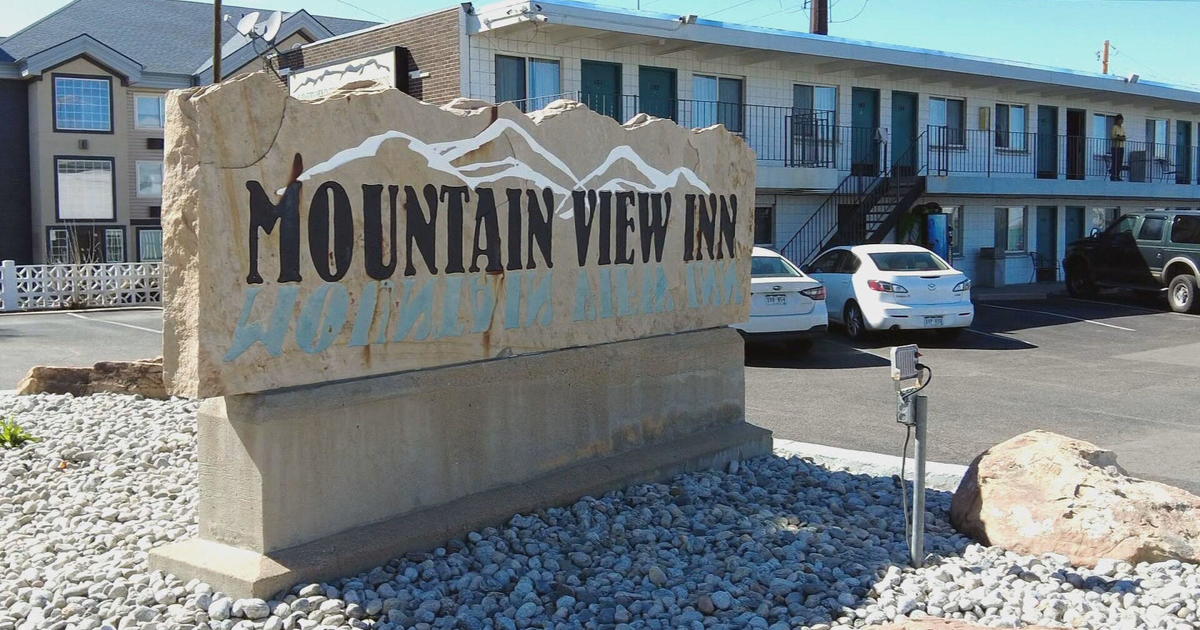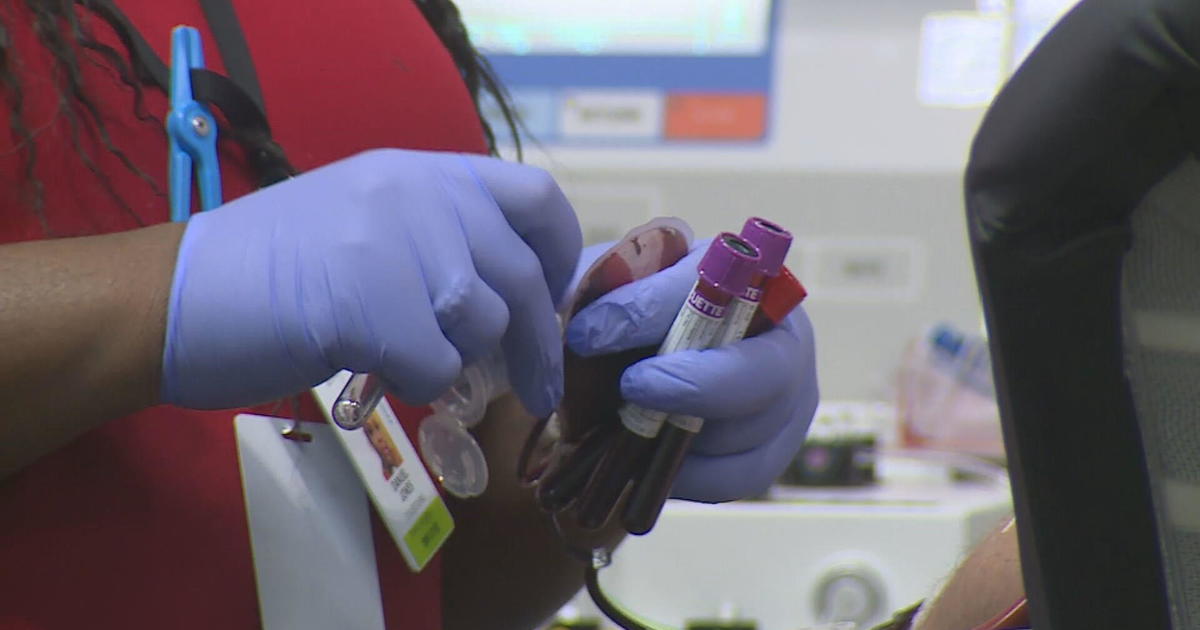Gardner Hoping 'New Kind Of Republican' Message Broadens Appeal
CBS4 is profiling six candidates in three extremely close elections in Colorado. Republican Rep. Cory Gardner of the state's 4th U.S. House district is facing incumbent Sen. Mark Udall, a Democrat. CBS4 will publish a profile of Udall on Wednesday. Profiles of the candidates in the governor race will run next week.
DENVER (CBS4) - In a state balanced among Democrats, Republicans and independents, Cory Gardner has necessarily taken a tack to the state's center.
The congressman from Colorado's 4th U.S. House district, a primarily conservative one, has tried eschewing some of his party's more partisan positions on climate change, personhood amendments and immigration; he would much rather talk about the economy, foreign affairs and his opposition to Obamacare.
To claim more centrist ground on those issues, Gardner's campaign is billing him as a "new kind of Republican."
His remarks on a federal "Life at Conception Act," which he co-sponsored, are brief: "It's a statement that I support life." Attempts to get him to elaborate are met with a comparably truncated answer. He often turns the tables on his opponent, Sen. Mark Udall, for the Democrat's relentless focus on Gardner's social stances, calling Udall a "social issues warrior."
Gardner similarly doesn't like addressing climate change. At a debate on Oct. 1, Gardner refused to say "yes" or "no" on whether he believes humans are the primary cause.
"I believe climate is changing," he said in a recent interview with CBS4, but he added he doesn't want the country to pursue policies that would damage the economy for the environment's benefit.
But the environmental question does provide Gardner with a pivot to the economy: He says more than 200 bills with strong bipartisan support have passed the House that the Senate won't consider.
"(They're) ideas that could grow our economy, ideas that could secure better opportunities and they aren't even brought up for a vote. The Senate failed for five years to pass a budget. That's one of the requirements of a Senate to do."
Since 2010, Gardner has represented most of Colorado's eastern plains in a district that Mitt Romney won by 19 percentage points in 2012. That President Barack Obama captured the state by 5.4 percentage points explains Gardner's maneuvering and describes the daunting task he has assumed. He's not running for re-election in the 4th where he would have easily won.
So he's tried broadening his appeal statewide.
"That's why we've gone around the state over the last several months, talking about our four corners plan: This is a plan focusing on the economy, energy, education and the environment," he said.
He often says in advertisements and in speeches that he wants to "shake things up" in the U.S. Senate,
"to get things done, to put forward a positive agenda for this country."
Affordable Care Act Opposition, Economy Central To Gardner's Hopes
Gardner's economic plan is at his campaign's heart.
He attacks Udall for statistics that say Colorado's recovery isn't as rosy as the incumbent believes.
"If you look at what's happening around Colorado over past several years, median household income has declined by over $4,000," Gardner said. "The number of hours that families are working is declining because of Obamacare. The American people, the people of Colorado are working harder than they ever have, and they're finding opportunities more and more difficult to reach."
Meanwhile, he says, prices on college tuition, food and gas have risen while Udall's been in office.
Gardner supports expanding the earned income tax credit that he says will lift more lower-income Americans out of poverty.
He opposes raising the federal minimum wage and instead supports state control over wages, like Colorado's annual tracking that's based on a consumer price index.
"Washington, D.C., shouldn't be dictating to Burlington, Colo., what to do," Gardner said.
The Affordable Care Act was a primary reason why Gardner launched a bid for the Senate. He's voted to repeal the act several dozen times, claiming that its economic impact is devastating.
"I believe that we can do better," he said. "I believe we can put in its place ideas that will actually work to lower the cost of care and increase the quality of care."
He says there is bipartisan support to eliminate the medical device costs and the independent payment advisory board.
"There are ways we can work together," he said. "It is unsustainable."
Climate Change Measures Can't Imperil Economy
Gardner has said repeatedly he won't jeopardize the country's economy for harsh environmental measures that punish companies.
"I am not willing to pursue devastating economic policies," he said.
He said he isn't sure how much humans affect the climate.
"There are differences to the extent that is happening," he said.
He has supported domestic-energy projects like the proposed phase of the Keystone XL pipeline that would transport oil from Canada through western U.S. states. Opponents say the environmental impacts could be severe, but Gardner says the project ensures thousands of jobs that pay $20 to $30 an hour.
Gardner, who sits on the House Committee on Energy and Commerce, has also sponsored legislation that seeks energy-efficiency in government operations.
"I think we ought to work and do everything we can to improve our environment. We have an obligation to make sure we have a cleaner environment for the next generation. That's why I supported energy-efficient legislation, making sure we can make our federal buildings more energy-efficient."
Immigration Reform Begins With Border Security
Illegal immigration has also drawn Gardner closer to Colorado's political center. The representative said he supports a wide-ranging agenda that features border security at its core.
"We need immigration reform. The Senate bill isn't the only idea out there. The Senate doesn't have monopoly on good ideas," Gardner said, referencing a 2013 bipartisan bill passed by the Senate but not voted on by the House.
He said the Senate bill would stop as little as a third of the undocumented immigration into the country.
"We should start with border security, yes, but border security in and of itself isn't enough," he said. "We have to have a guest worker program, fix the entry-exit system, fix the e-verify system and make the system work so that 30 years from now, we can look back at 2014 and say, "What they did then still works today.' "
Gardner hasn't said whether he supports a path to citizenship but said he wouldn't back deporting the tens of millions of illegal immigrants already in the United States.
"I think some kind of an earned status is certainly something this country will move toward, but we have to make sure that we start with a secure border, start with a guest worker program," he said. "Put those in place to give the American people the confidence that we can carry this forward in a responsible manner."



